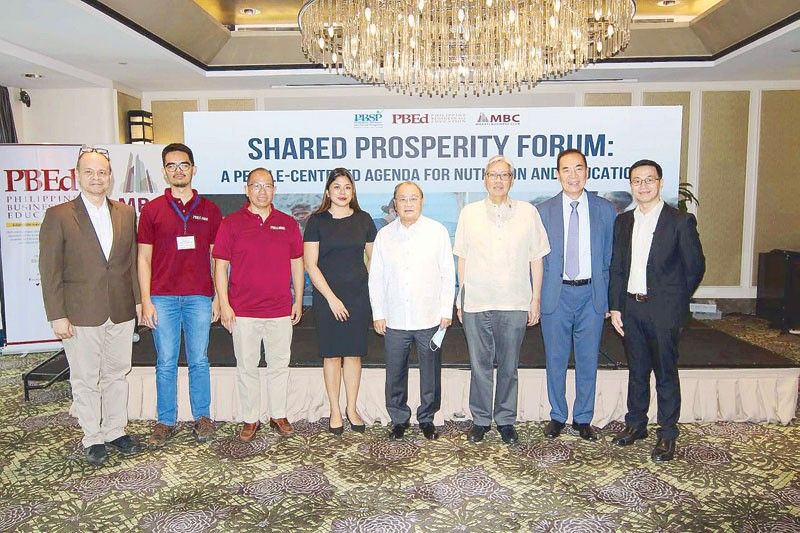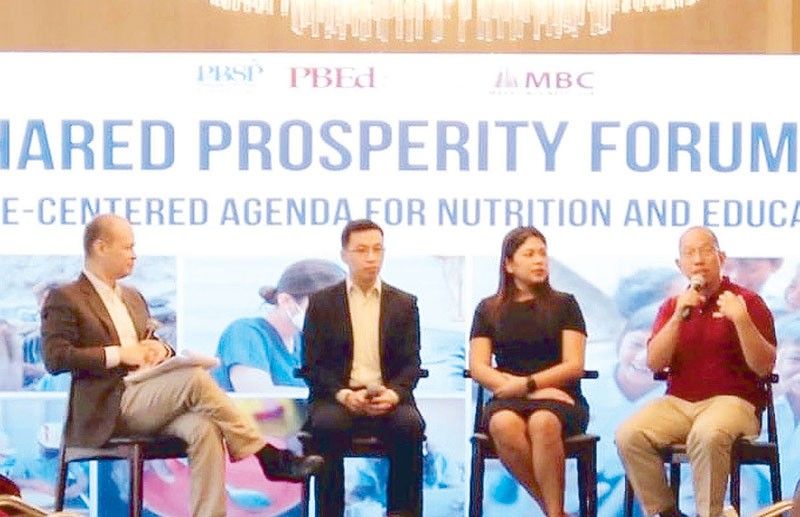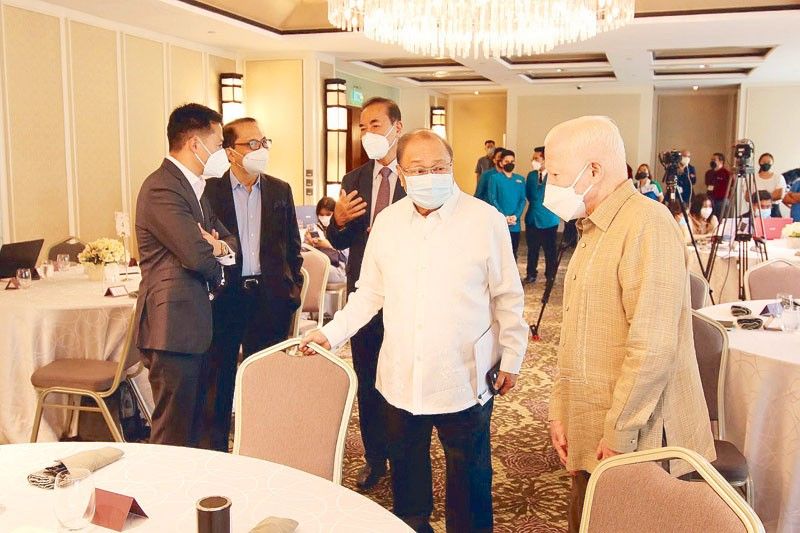Food to go

Back at the height of the COVID-19 pandemic lockdown, I wrote about food security and about how COVID-19 disrupted livelihood, food supply chains, and people’s access to food and basic services.
“The threat of hunger is as real as the threat of COVID-19,” was the message then Agriculture Secretary Dr. William Dar carried with him.
Nearly half of all Filipinos (45.5 percent) experience food insecurity. Food was available, but it was more of a question of getting it to where it was needed most.
The Russian invasion of Ukraine aggravated what was already a precarious global food situation.
Not only that, but there was also serious concern about the quality and quantity of food that Filipinos eat, because there was also the problem of acute malnutrition and hunger.

UNICEF says that every day 95 children in the Philippines die from malnutrition. Twenty-seven out of 1,000 Filipino children do not get past their fifth birthday, and one in every three Filipino children are stunted, or short for their age. Stunting after two years of age can be permanent, irreversible, and even fatal.
According to the World Health Organization (WHO), stunting is “the impaired growth and development that children experience from poor nutrition, repeated infection, and inadequate psychosocial stimulation.”
Stunting in early life — particularly in the first 1,000 days from conception until the age of two — has adverse functional consequences on the child. Some of those consequences include poor cognition and educational performance, low wages, lost productivity and, when accompanied by excessive weight gain later in childhood, an increased risk of nutrition-related chronic diseases in adult life.
No doubt that hunger and malnutrition were impacts of poverty. And to deal with the two, you had to address poverty at its core.
Recently, a Shared Prosperity Forum was held by the Philippine Business for Social Progress (PBSP), Philippine Business for Education (PBEd), Makati Business Club (MBC), and the Management Association of the Philippines (MAP).
The forum tackled shared prosperity through a people-centered agenda for nutrition and education.
It issued a joint statement, thus: “We, leaders of business and private sector, share with the Filipino people a vision of prosperity that is equitable and sustainable. We envision a prosperous nation that benefits all.
“For decades, our human capital has been neglected. One in every three children aged five and below is stunted. Nine out of ten learners are not able to meet minimum reading skills. Focusing on Nutrition and Education will increase human capital. It will drive economic growth and development and will allow Filipinos to lead comfortable and productive lives.
“Together, we propose the following plan of action to achieve shared prosperity through the prioritization of nutrition and education in our national policies.
“For nutrition, we propose:
1. Develop nutrition-specific solutions for at-risk mothers and children in the first 1,000 days that are accessible and free.
2. Support Public-Private Partnerships for nutrition-centric governance at the provincial, city, and municipal levels to ensure the effective and sustained implementation of the Philippine Plan of Action for Nutrition (PPAN).
3. Strengthen inclusive safety nets for the most vulnerable households through continued access to safe, affordable, and nutritious food, and expansion of economic opportunities for them.
4. Empower farmers with climate-smart resources, technology, and services towards improved yield, efficiency, and resilience.
“For education, we propose:
1. Bring all children to quality pre-Kindergarten to Grade 3 education and developmental programs.
2. Improve the quality of instruction and teachers with the target that all learners meet basic skills based on international standards.
3. Use the lens of lifelong learning in workforce development.
4. Fully leverage private education to better complement delivery of services.
5. Strengthen autonomy, coupled with accountability, of school leaders and local governments.

“We commit to pursue these strategies both in the public policy sphere and in the programs of our organizations.
We believe that the current and succeeding generations of Filipino children deserve prosperous lives. We can and must deliver.”
The four business advocacy groups call on the present administration to prioritize nutrition and education in its first 100 days.
The fact that President Ferdinand Marcos Jr. himself has taken on the yeoman’s task of handling the agriculture department, precisely to deal with the plight of our farmers and the food security of the nation, goes to show how this administration has taken these concerns seriously.
Indeed, PBSP, PBEd, MBC, and MAP have signified their commitment and are counting on the new administration’s call for unity by working together to ensure healthy and educated Filipinos to drive the nation towards shared prosperity.
As PBSP chairman Manuel V. Pangilinan has put it, “What businesses can do in addressing poverty is to provide jobs. It is incumbent upon businesses to raise their investments because more jobs bring more income to people. Businesses must also make a serious effort in investing in agriculture. Our role is to enable our people to feed themselves and send their kids to school.”
- Latest



























